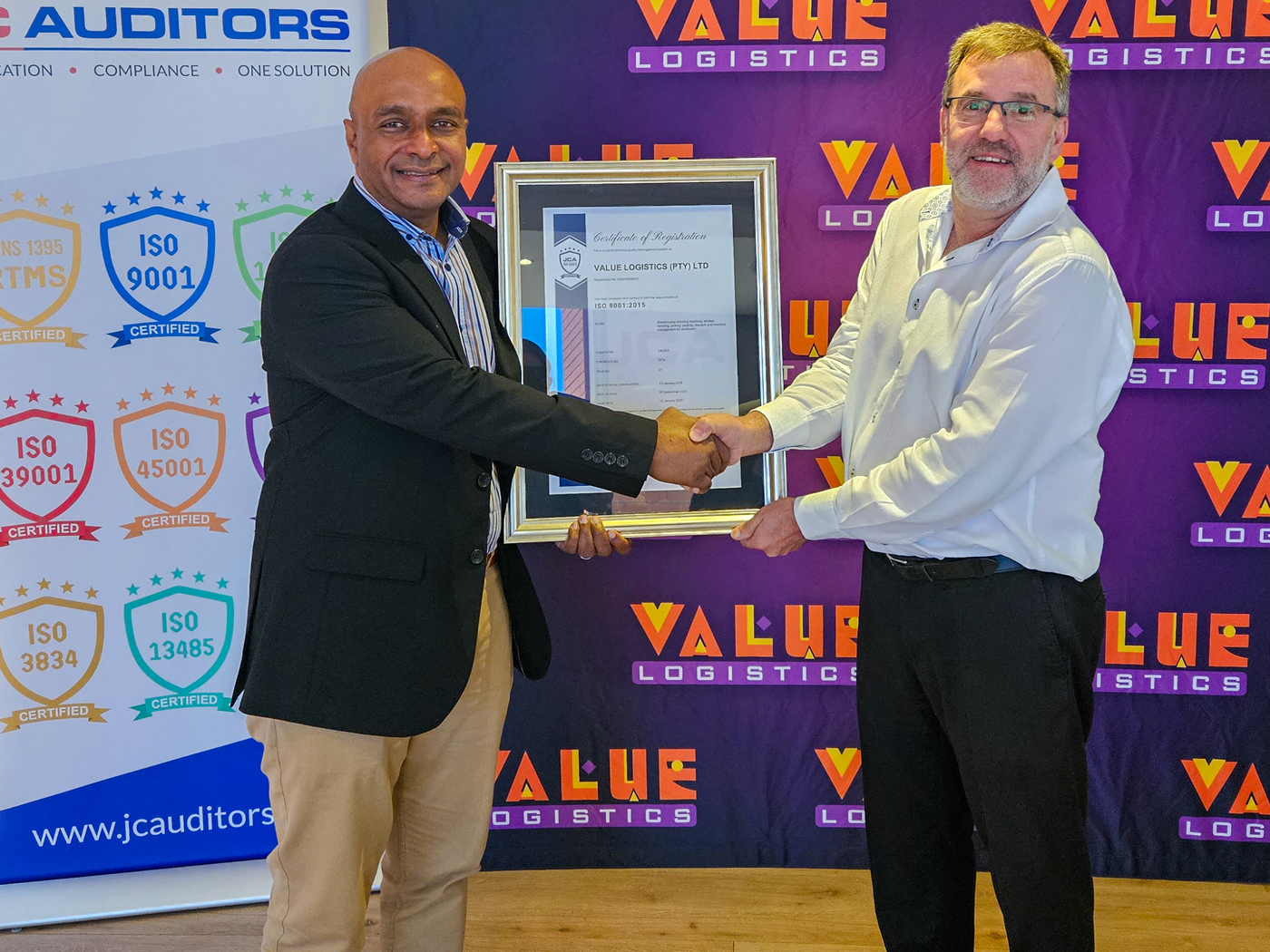Revealed: why we need international standards
Revealed: why we need international standards
We’ve all heard about international standards like ISO. But are they really necessary?
Oliver Naidoo, managing director of JC Auditors (JCA), tackled this issue at the recent Transport Forum meeting at the University of Johannesburg (UJ). He delivered a compelling presentation on the pivotal role of international ISO standards in fostering sustainable supply chains, with a focus on adoption within South Africa. Naidoo’s insights shed light on the critical benefits and encouraging trends in ISO adoption, as well as the exceptional success of South Africa’s own SANS 1395 Road Transport Management System (RTMS) standard.
Naidoo emphasised how international standards play a crucial role in facilitating trade, protecting business brands, and enhancing the efficiency of operations. “They provide a framework for businesses to ensure the quality of their products and services, thereby increasing acceptance in global markets,” he explained.
Despite global trends, South Africa has historically shown a lower adoption rate of ISO standards. “However, there are promising signs of improvement, particularly with ISO 9001 and ISO 45001,” said Naidoo. “The mandatory requirement of ISO 13485 for medical device establishment licenses by SAHPRA further highlights the growing importance of these standards in South Africa.”
He highlighted that ISO standards require a structured framework that encourages the development of innovative processes. These processes are designed to deliver on business sustainability and stakeholder expectations, aligning with the increasing investor demand for Environmental, Social, and Governance (ESG) initiatives.



“The main ISO standards highlighted include ISO 9001 for Quality Management, ISO 14001 for Environmental Management, and ISO 45001 for Occupational Health and Safety Management. These standards promote a risk-based approach to ensure quality, prevent pollution, and protect employees’ lives,” he pointed out.
The success of South Africa’s SANS 1395 RTMS standard was lauded, with its notable improvements in safety performance, compliance, and efficiency in the supply chain. “With over 10,000 audits conducted in 15 years by JC Auditors, RTMS has demonstrated significant benefits, including accident reduction, improved fleet availability, and greater compliance with regulations,” Naidoo told delegates.
The address highlighted how the adoption of national and international standards enables businesses to mitigate risk, improve safety, and contribute to a sustainable supply chain. These standards provide a framework for continuous improvement and ensure that businesses operate responsibly and efficiently.
“The significant impact of ISO standards and RTMS in building sustainable supply chains was noted. By adopting these standards, businesses can not only enhance their operational efficiency but also contribute to a safer and more sustainable future for all. Standards allows for sustainably transport in the first mile, the last mile and all the miles in between,” Naidoo concluded.
Published by
Focus on Transport
focusmagsa




